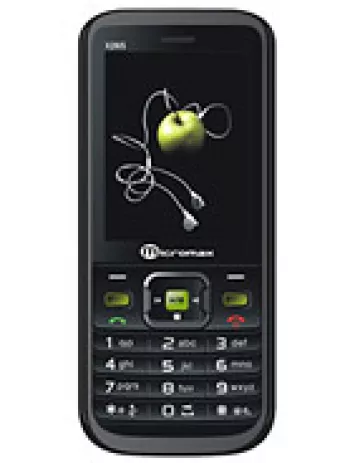
Overview of Micromax X55 Blade
The Micromax X55 Blade is a dual-SIM feature phone released in 2011 by Micromax, a brand renowned for its budget-friendly and functional mobile phones, particularly in emerging markets. The device is designed as a barebones mobile solution, providing essential telecommunication features at an affordable price point. Discontinued years ago, it still serves as a representation of the early 2010s feature phone landscape.
Body and Design
The Micromax X55 Blade boasts a compact form factor with dimensions measuring 118.2 x 51.4 x 10.3 mm. While the phone's exact weight isn’t specified, it was designed to comfortably fit into any pocket or handbag, making it highly portable. The device features a dual SIM slot (Mini-SIM, dual stand-by), which was a significant selling point for those looking to manage two numbers simultaneously without resorting to carrying multiple phones.
Display
The device comes with a TFT display capable of supporting 256K colors. Although the screen size specifics remain unspecified, it provides a resolution of 240 x 320 pixels with a 4:3 ratio, which delivers adequate clarity for basic tasks such as SMS, calls, and menu navigation. Given its price range and release date, the display meets its primary goal of functional simplicity rather than competing with modern smartphone displays.
Camera Capabilities
In an era where mobile phone cameras were just gaining traction, the Micromax X55 Blade was equipped with a 5 MP rear camera. It includes an LED flash, adding some functionality in low-light conditions. While it may not compete with contemporary mobile cameras, it offers users a way to capture moments with reasonable quality and simplicity.
Sound and Audio
The X55 Blade comes with a built-in loudspeaker, providing clear output for calls and media playback. However, it lacks a 3.5mm headphone jack, limiting audio accessory options to proprietary connections. This could be seen as a drawback, particularly for users accustomed to using standard headphones.
Network and Connectivity
The handset supports GSM technology and provides basic data connectivity via GPRS and EDGE, both classified as Class 12. It lacks advanced connectivity features like WLAN and positioning services, but does support Bluetooth for simple file transfers and wireless communication. Additionally, it includes an FM radio, a staple for many users who preferred listening to local stations.
Memory and Storage
The Micromax X55 Blade includes a dedicated slot for microSDHC cards, allowing users to expand storage capacity to accommodate media files and other data. The phone’s built-in phonebook can store up to 1000 entries, ensuring ample space for contact information. While not offering advanced features such as internal app installations or multimedia expansions, it fulfills the basic user requirements of its time.
Battery Life
The device is powered by a removable Li-Ion battery, a common feature in phones from that era, allowing users to replace the battery when its performance declined. Although specific battery life details aren’t provided, users could typically expect several days of standby on a single charge due to the phone’s minimalistic feature set and power consumption.
Usability and Operating System
The Micromax X55 Blade operates as a feature phone, emphasizing calls, SMS, and basic multimedia features. It supports SMS and MMS messaging and allows users to download simple Java-based games, bringing a touch of entertainment to the feature phone experience. Given its focus on core functionalities, it was well-suited for users who required a reliable communication tool without the complexity of modern smartphones.
Conclusion
Although discontinued, the Micromax X55 Blade remains a notable reference point for the evolution of mobile phones, particularly in balancing cost with essential communication and multimedia functionalities. While smartphones dominate today’s market, devices like the X55 Blade highlighted the importance of accessibility, dual SIM capabilities, and simplicity during their time. Those nostalgic for simpler mobile experiences or needing a backup phone may appreciate its straightforward design and operation.
Key Features of Micromax X55 Blade
- GSM Technology with Dual SIM capability
- TFT Display with 256K colors
- Expandable memory via microSDHC card slot
- 5 MP main camera with LED flash
- Support for Bluetooth and FM radio
- Downloadable games and Java support
- Removable Li-Ion battery for convenience
- Affordable pricing around 60 EUR
Micromax X55 Blade Drawbacks
- Discontinued model; no longer available for purchase or support.
- Only supports GSM 2G bands; lacks 3G and 4G connectivity.
- No Wi-Fi capability, limiting internet access and data usage options.
- No GPS functionality, unsuitable for navigation and location services.
- Lacks a front-facing camera for selfies and video calls.
- No standard 3.5mm headphone jack, limiting audio accessory compatibility.
- Uses proprietary USB connection instead of common micro USB or USB-C ports.
- Low resolution display with only 256K colors, impacting screen quality.
- The phone's weight is not specified, potentially indicating a lack of design concern.

View Also
More Phones
All Rights Reserved +14266 Phones © Mobilawy 2025

























